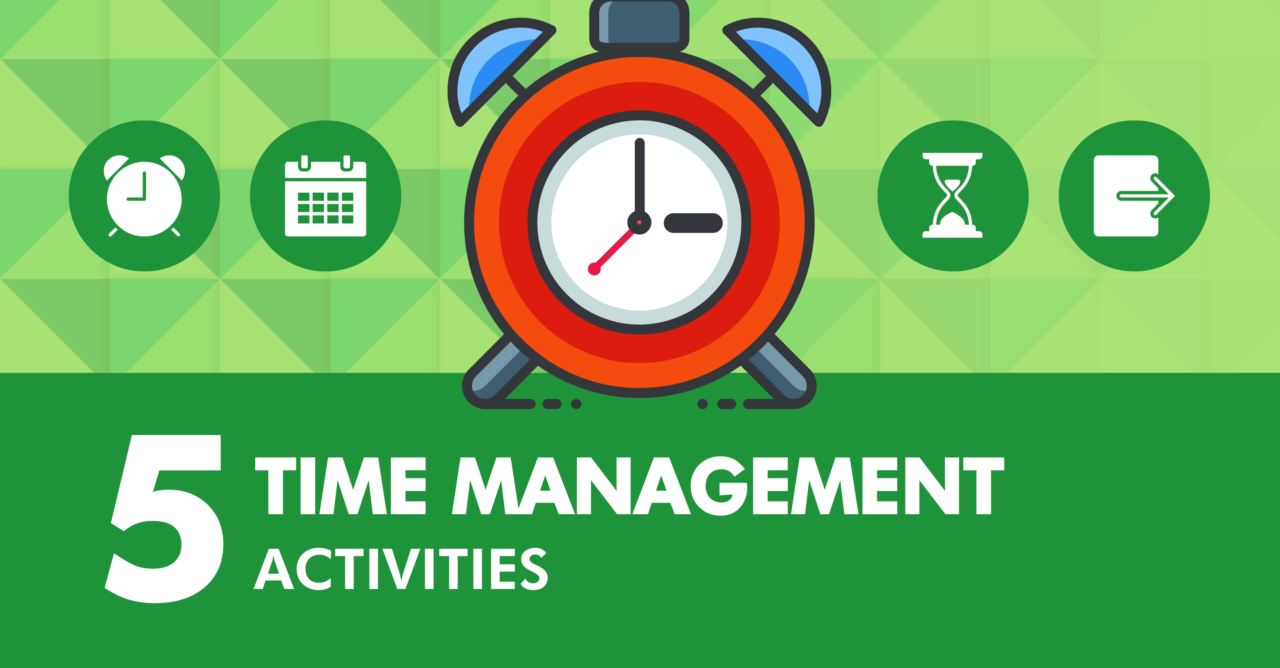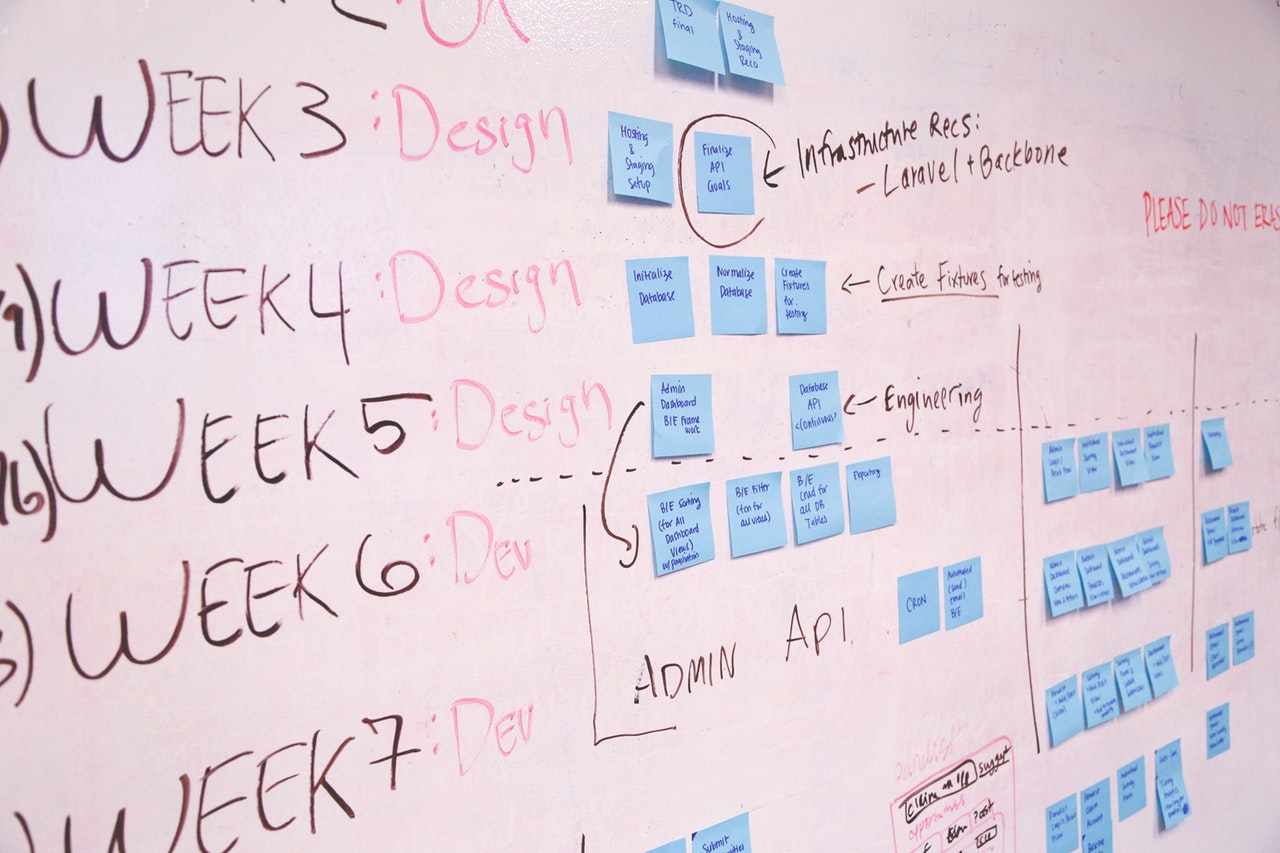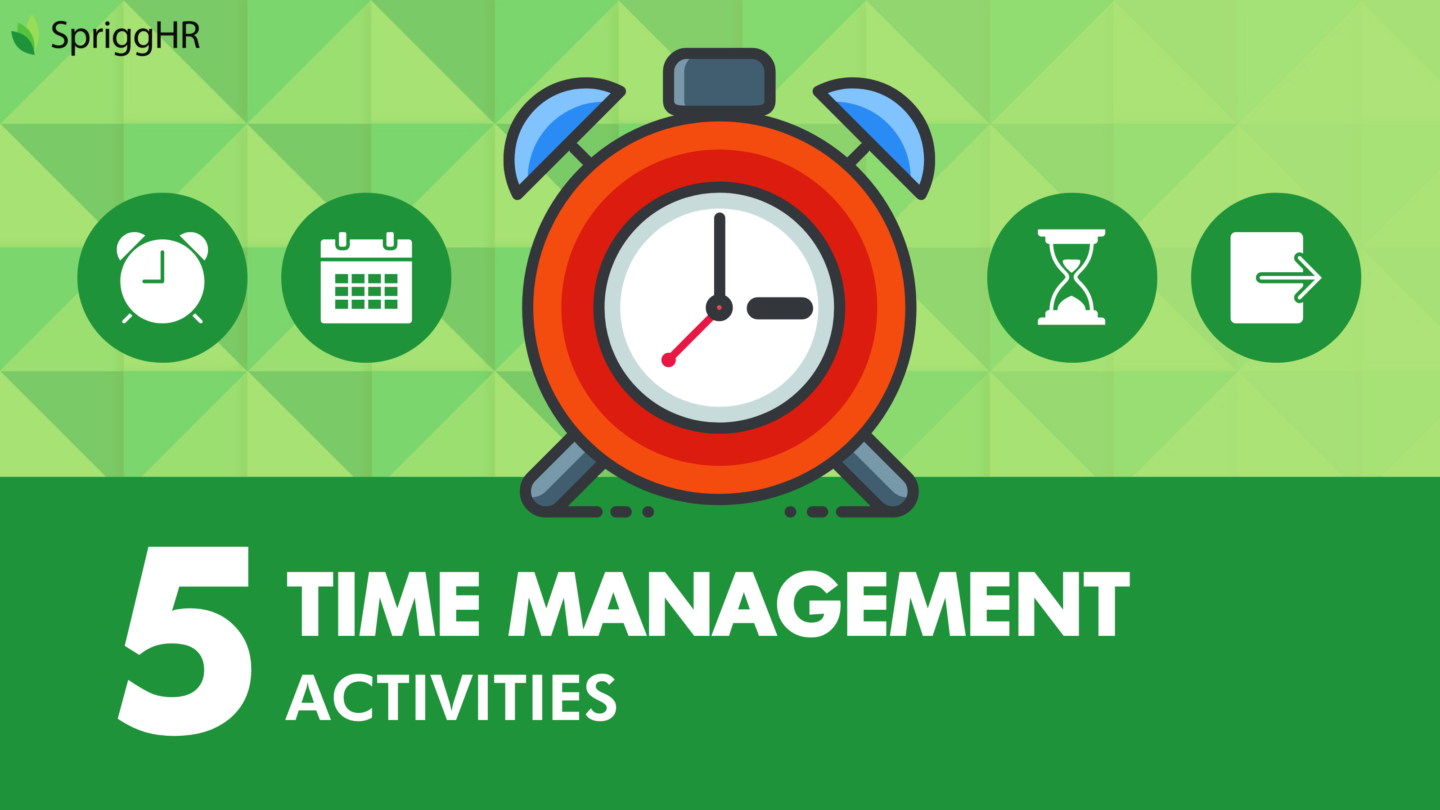
The Importance of Time Management
5 Time Management Activities
Effective time management may seem increasingly hard to achieve in a modern busy workplace. However, by implementing the following time management activities, you can take back and even own your schedule.
The Importance of Time Management
The value of time cannot be understated, especially in today’s increasingly busy workplace. Often, employees and managers alike spend almost as much time stressing over not having enough time to complete a task or reach a goal, as they spend on working towards that goal.
There are many effective ways to tackle the issue of time management, some of which we will explore later in this article. However, if you don’t fully understand the importance of time management itself, then those strategies will be of little value. Without a full understanding of how integral effective time management is to the success of your work life or business, you won’t have the motivation to implement the necessary time management activities into your overall management strategy.
In order to fully grasp the importance of managing your time effectively, and what you and your company stand to gain from it, consider the following 6 reasons why time management is crucial:
1. Time is limited.
Employee engagement and success is often measured by how much an employee can accomplish in the same time frame as their peers. There are only 24 hours in a day, and only 8 hours in a workday, but these same time boundaries enabled some coworkers to regularly accomplish more than their peers, which eventually led to a promotion. If you aim to advance in your company, you must first recognize the importance of finding a way to manage this limited resource.
2. Accomplish more with less effort.
By being strategic with your time and prioritizing tasks efficiently, you are effectively taking control over your own schedule, which ultimately improves your ability to focus. With increased focus comes enhanced efficiency in your work efforts, since you spend less time lagging in your work and more time maintaining momentum.
3. Improve decision-making ability.
When you are under the stress of losing valuable time, your decision-making skills are more likely to subside, and you start to depend more on jumping to conclusions without fully considering every option. However, when you manage your time effectively, you eliminate the pressure that comes from feeling like you don’t have enough time to thoroughly consider every option. You’ll feel calm and in control of the situation, giving you the time to examine each option and ultimately having you make the best decision afterwards. Instead of rushing through the decision-making process, you can carefully think through each route to take, diminishing your chances of making a bad decision.
4. Provide more learning opportunities.
The more you learn, the more valuable you are to your employer. Most workplaces offer great learning resources, but many of these opportunities fall to the wayside due to employee’s feeling they have no time to take part in them. When you aim to work more efficiently, you gain that time back. You can channel more time into helping with new projects, volunteering for company activities, even spending more time with coworkers in other departments. The more you engage yourself in your workplace, the better your chances are of making a positive impression on your employers.
5. Reduce stress.
When you feel like your schedule is out of your control, it’s very easy to start feeling rushed and overwhelmed with your responsibilities. When you are in that headspace, it becomes increasingly difficult to get a sense of how long it’s going to take for you to complete a task. However, once you learn to effectively manage your time, you no longer must subject yourself to that level of stress. On top of this being beneficial to your health, you have a clearer sense of the timeframe of your work demands. Resultingly, you’re better able to estimate how long tasks will take to complete and can then prioritize your efforts to meet deadlines accordingly.
6. Promote self-discipline.
By practicing good time management, you leave no room for procrastination. The stronger your time management skills become, the more self-discipline you begin to learn. This is not only beneficial in your work life but is a transferrable skill that can apply to any other area of your life where a lack of discipline has inhibited your ability to reach a goal.

5 Effective Time Management Activities
Now that we understand the importance of time management, how do you go about implementing that into your everyday work strategy?
In order to effectively manage your time, you need techniques that do more than generate to-do lists. You need activities that are adapted to your busy job and busy work environment. Here are 5 effective time management activities that can accomplish this:
1. Work with Your Daily Rhythm
Your circadian rhythm is your body’s internal 24-hour clock, and the waves of alertness and lethargy are your body’s natural “scheduled” periods of energy. For many working adults, the lowest energy points are between 1:00-3:00pm. These may be a bit different for night owls or morning people, or for those who do not get enough sleep.
Instead of pushing yourself to power through the mid-day low-energy period, aim to schedule your tasks around them. Focus on the more mentally demanding tasks when you are naturally more energized and leave the more mundane tasks for the times when you feel fatigued.
Activity: The Circadian Rhythm
Ask each employee to plot out their day from waking up to going to sleep into hourly blocks, identifying each based on whether they are naturally:
- ‘On Fire’
- ‘Vibrant’
- ‘Cruise Control’
- ‘At 70%’
- ‘Distracted’
- ‘Slowing Down’
- ‘Tired’
- ‘Hungry’
The goal of this is for participants not to think about their day in terms of workload, but instead by their natural energy levels, so suggest they plot it out as if it was a typical day off work. Once they have their “energy schedules” plotted out, ask them to link this to workplace time management. When they are naturally ‘on fire’, they should tackle the important, mentally demanding tasks. When they are lethargic or slowing down, they should focus on the more mindless tasks. It’s ideal to have participants share their rhythms with one another as this can be a great opportunity for teammates to learn more about their colleague’s work habits.
2. Understand Your Current Habits
It is impossible to control all distractions that might crop up during a regular workday. However, you can aim to control what you do with the distraction-free time you have afterwards. In order to do that, you must first recognize what you already do with that time. By mapping out what you put your time in when you are under no pressure, you can recognize how it is you spend your time and start holding yourself accountable to your own productivity.
Activity: What I Did Yesterday…
Ask each employee to write down a list of 10 things they did at work yesterday. Do not outline any specific order, prompts, or comments. Then, on a separate sheet of paper, ask them to list the 5 topics they expect to discuss at their next performance review session. Have them compare the two lists, marking on the first all the tasks which have a direct link to the second list.
The goal of this is to have employees recognize the time they spend on things which have little or no consequence to their performance. This clearly links performance level with everyday activities and allows employees to concentrate on the important and urgent activities over the non-urgent activities in their everyday efforts.
3. Take Consistent Breaks
It is impossible to spend every waking minute of the workday at a 100% focus level. In fact, regular rest periods are necessary for focus itself. This can manifest in several ways, from taking a walk outdoors, eating a snack, or shifting to a less mentally demanding task. A good rule of thumb is that for every 90 minutes of working (particularly with technology), an employee should take a 10-minute break at least. For some, 20-30 minutes of recharging time may be more suitable. By staying in tune to your focus levels and needs for rest, you can effectively manage your time and accomplish more in the same number of hours as your peers.
Activity: How Long is a Minute?
Ask employees to close their eyes for 30 seconds, not allowing anyone to watch the clock. By having participants open their eyes after what they believe has been 30 seconds, many will open them at different times. Allow this to start a discussion of everyone’s understanding of the passage of time. Though every employee has an equal amount (24 hours a day, 30 seconds of the activity), they each experience and use it in different ways. Some experience it as a short period, others as a longer period.
By recognizing how individual employees perceive the passage of time, it allows everyone in the team to understand the varying degrees of rest that each employee requires to stay focused in their work. Some employees are able to power through over longer periods of time, because they are less in tune to the passage of time, while some others require more consistent breaks to stay focused.

4. Schedule Quiet Hours
Many modern organizations prefer open office arrangements, which is an effective way to encourage and support team collaboration and comradery. However, these arrangements sometimes pose the risk of becoming distracting, difficult work environments, especially for those employees who thrive better by working in a quiet workspace.
In order to maintain your encouragement of collaboration but eliminate the potential for your employees to view their workplace as too distracting, try instituting “library hours” during the workday. During a set period of around 1-3 hours, the office is reserved for quiet, focused work with no interruptions or conversations. Honoring quiet hours during the day prevents a constant flow of distractions, without making your workplace feel stifling. Coworkers still have ample opportunity to collaborate and chat with each other, just not during the designated focus hours.
5. Disconnect from the Digital World
Especially in today’s workplace, one of the most prominent sources of distraction comes from the very same tools we use to accomplish our tasks: computers, phones, and other digital devices. While the use of technology can be often unavoidable, there are still measures you can take that limit the risk of Internet rabbit hole distractions.
You can aim to keep your phone away, out of sight, and silent during work hours. If you are prone to keeping many different tabs open, make the effort to open only what you need and closing what you don’t. You can even download apps and plugins to your devices that block certain websites for you during designated times of the day. Whatever measures you take; the aim should be to unplug during your deep-thinking tasks at least. The positive results it will have on your productivity will be undeniable.
Final Thoughts
The importance of time management cannot be understated, as typically when managed correctly, it allows you to accomplish more in a shorter timeframe. This leads to more free time, which allows you to take advantage of learning opportunities, lowers your stress, and helps you focus, which in turn leads to more career success. Time management allows you to take control of your life, rather than being at the mercy of counting down the clock. Once you begin to accomplish more in your workday, you are then able to make more sound decisions and feel more in control. Each benefit of strong time management works to improve another aspect of your life – all you need to do is kickstart the cycle.




